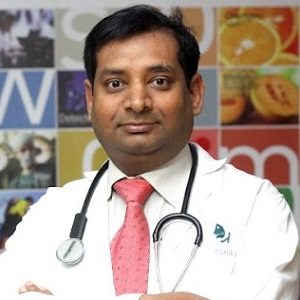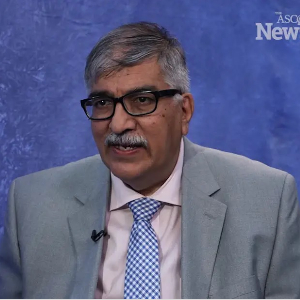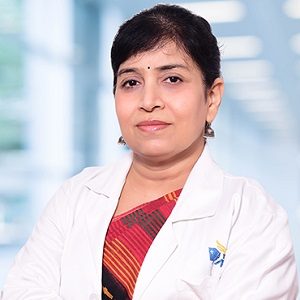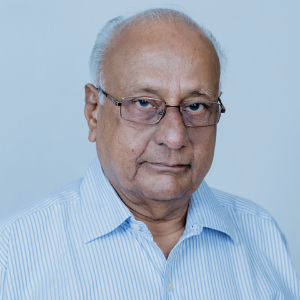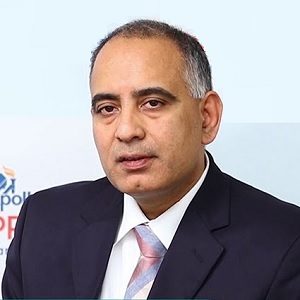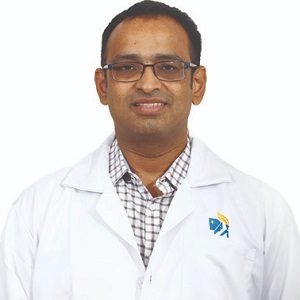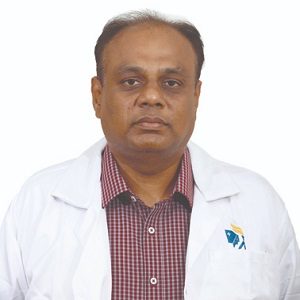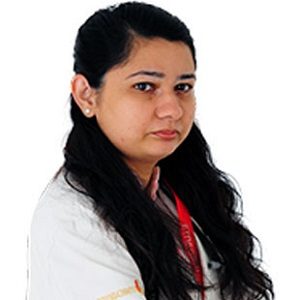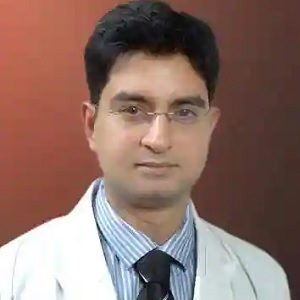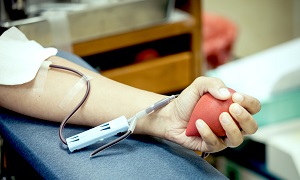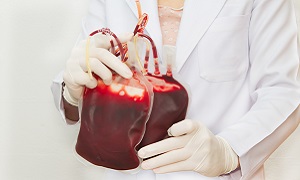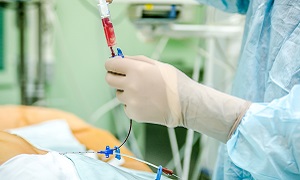Best Autologous Bone Marrow Transplant Doctors in India
- Hemato Oncologist & BMT Specialist, New Delhi, India
- Over 10 years’ experience
Profile Highlights:
- Dr. Shishir Seth is a Hemato Oncologist and Bone Marrow Transplant specialist currently practicing at Indraprastha Apollo Hospital, New Delhi
- He has performed over 200 hematopoietic stem cell transplants successfully of which 40 included allogenic haploidentical transplants and antigen mismatch transplants. He has also performed 300 induction therapies for acute leukemia.
- Dr. Shishir Seth is an expert hematologist and hemato oncologist with an interest in the management and treatment of different blood diseases (benign and malignant).
- With an experience of 10+ years in Hematology and BMT, Dr. Seth has achieved several feats in his career that have gained him immense popularity and recognition.
- Dr. Shishir Seth is involved with research work as well and has numerous publications in his name in national and international journals.
- Director and Head Medical Oncology/Hematology, Gurugram, India
- Over 40 years’ experience
Profile Highlights:
- Dr. Rakesh Chopra is a well-known Medical Oncologist with national and international repute as one of the best in the treatment of all types of blood cancers including leukemia, lymphoma, multiple myeloma, and bone marrow transplant.
- His specialization lies in blood cancer and also provides treatment for solid cancers of the breasts, lungs, prostate, colon, and GI.
- Pediatric Hemato Oncologist, New Delhi, India
- Over 25 years’ experience
Profile Highlights:
- Dr. Amita Mahajan is an established pediatric oncologist in India. She has assisted patients in recovering from health checkups, nutrition consultation for children, Bone Marrow Transplant, diabetes, and childhood injuries.
- Since Dr. Mahajan has expertise in Adolescent Medicine besides Pediatrics Oncology and Hematology, she also offers treatment for Menstrual Disorders in Adolescent Girls.
- Medical Oncologist, Chennai, India
- Over 40 years’ experience
Profile Highlights:
- Dr. Bellarmine Vincent Lawrence is a well-known Medical Oncologist in South India with a specialization in the treatment of breast cancers.
- He provides overall both pre and post-operative treatment of breast cancer that includes diagnostic, therapeutic as well as palliative care.
- He also provides services for other types of cancers including blood cancer and does procedures like Chemotherapy for the treatment and biopsies for the detection of cancer.
- Medical Oncologist and BMT Specialist, Chennai, India
- Over 25 years’ experience
Profile Highlights:
- Dr. T. Raja is a Medical Oncologist from the Tamil Nadu state with 25 years of know-how in this field.
- He has proficiency in Cancer Screening, Chemotherapy, PICC Line Insertion, Bone Marrow Transplantation, Stem Cell Transplantation, Pap collection, lymphoma, Renal Cell Cancer management, and Head and Neck Tumor.
- Dr. Raja was the Principal Investigator for several clinical studies, a published author for journals, and a teacher.
- Hematologist, Chennai, India
- Over 29 years’ experience
Profile Highlights:
- Dr. Prabu P is one of the top hematologists in Tamil Nadu with an experience of more than 15+ years in the field.
- He gained most of his experience working in the United Kingdom and now practices at Apollo Hospital, Chennai.
- Dr. Prabu acquired experience in general and malignant pediatric hematology while working in the pediatric hematology unit of St James University Hospital, Leeds.
- Hematologist, Chennai, India
- Over 25 years’ experience
Profile Highlights:
- Dr. Srikanth M is one of the top Hematologists in Chennai with an experience of 25 years in the field.
- He assists patients with an accurate diagnosis, consultation, and treatment for Hemophilia, Leukemia, Myeloma, Thalassemia, Lymphoma, and other blood diseases. The doctor also offers Bone Marrow Transplant and Chelation Therapy, etc.
- Dr. Srikanth M has completed MRCP from the Royal College of Physicians, London to enhance his skills and received a fellowship from Royal Marsden Hospital.
- Hematologist, Gurugram, India
- Over 10 years’ experience
Profile Highlights:
- After years of practice, Dr. Neha Rastogi has unmatched expertise in diagnosing and treating different kinds of disorders such as anemia, thalassemia, hemophilia, solid tumors, and blood cancers.
- Besides all this, she has the ability to diagnose and treat various primary immunodeficiency disorders as well.
- Being interested in cellular and immunotherapy, Dr. Neha Rastogi works with the agenda of transforming the face of cancer disorders and transplantation.
- Hemato Oncologist, Gurugram, India
- Over 20 years’ experience
Profile Highlights:
- Dr. Nitin Sood is the Director of the Department of Hemato Oncology and Bone Marrow Transplant at Medanta-The Medicity, Gurugram.
- He is an expert in treating patients suffering from lymphoma, myeloma, bleeding and clotting disorders, thalassemia, and aplastic anemia.
Best Autologous Bone Marrow Transplant Hospitals in India
Rela Hospital, Chennai
- City: Chennai, India
Hospital Highlights:
- RIMC is a multi-specialty hospital in a sprawling area of 36 acres located in Chromepet, Chennai, Tamil Nadu, India.
- The facility has 450 beds including 130 critical care beds, 9 operating rooms, modern reference laboratories and radiology services, and is conveniently located near road, rail and air transportation.
- RIMC is led and managed by world-renowned physicians committed to healthcare.
- RIMC offers the broadest range of clinical care, education, and research. The hospital offers state-of-the-art technology and modern treatment facilities designed to provide health care at an affordable cost.
- Rela Institute is driven by patient needs, comfort and confidence.
CARE Hospitals, Hyderabad
- City: Hyderabad, India
Hospital Highlights:
- CARE Hospitals were established in the year 2000, by CARE Group.
- The multispecialty hospital has 435 beds, including 120 critical care beds, with an annual inflow of 180000 outpatients and 16,000 in-patients.
- The hospital provides specialty medical services in Cardiology, Cardiothoracic Surgery, Pediatric Cardiology, Pediatric Cardiothoracic Surgery, Neurology, Neurosurgery, Nephrology, and Urology.
- The hospital has the first dual source, 128 slice CT scanner (for high precision cardiac imaging) – the first of its kind in south India.
- The hospital offers a wide range of accommodation facilities for the convenience of its varied patient base, ranging from general wards to super deluxe rooms.
Fortis Hiranandani Hospital, Mumbai
- City: Mumbai, India
Hospital Highlights:
- Fortis Hiranandani hospital was established in 2007.
- The hospital is an advanced tertiary care, multi-specialty hospital equipped with 149 beds.
- The hospital is equipped with a super ICU to provide emergency medical care to critically ill patients.
- The hospital is NABH accredited.
- The critical care facility in the hospital is augmented with the state-of-the-art facilities that facilitate speedier diagnosis and efficient monitoring.
- The hospital provides specialty medical services in cardiology, orthopedic science, pediatric science, neurology, diabetic care, urology, nephrology, ENT, obstetrics, gynecology, cosmetic surgery, bariatric surgery, neuro and spine care.
Fortis Hospital, Anandpur, Kolkata
- City: Kolkata, India
Hospital Highlights:
- Fortis Hospital, Anandapur, Kolkata is a world-class super-speciality equipped with the latest technologies in the medical world.
- The hospital is NABH accredited.
- This state-of-the-art facility specializes in cardiology and cardiac surgery, urology, nephrology, neurosciences, orthopaedics, digestive care, emergency care and critical care.
- The hospital, governed by integrated Building Management System (IBMS), has a pneumatic chute system, for quick vertical and horizontal transportation between floors, facilitating speedy transfer of patient specimens, documents, reports, and medicines to the concerned departments.
- The hospital also has a nephrology department with over 28 advanced dialysis units.
Fortis Hospital, Malar, Chennai
- City: Chennai, India
Hospital Highlights:
- Fortis Malar was established in 1992 and was formerly known as Malar Hospital.
- The hospital specializes in cutting-edge medical technology and dedicated patient care services.
- The hospital is multi-specialty, tertiary care facility with 180 beds.
- The hospital offers comprehensive medical care in specialties such as cardiology, cardio-thoracic surgery, neurology, neurosurgery, orthopedics, nephrology, gynecology, gastroenterology, urology, pediatrics, and diabetes.
Gleneagles Global Hospital, Parel, Mumbai
- City: Mumbai, India
Hospital Highlights:
- Gleneagles Global Hospital The 450-bed facility comprises of 17-stories, housing state-of-the-art infrastructure, and advanced medical care facilities.
- The hospital offers end-to-end clinical, surgical, and diagnostic services. It is equipped with a team of eminent medical professionals aided by qualified nurses and medical staff
- The Hospital offers advanced Endoscopic procedures, Hepatobiliary and Liver Surgeries, Surgical and Medical Gastroenterology, Bariatric Surgery, and Robotic surgery.
- The hospital is a center of excellence for Orthopedics, Joint Replacement, Knee Replacement, and Hip Replacement surgery.
Jaypee Hospital, Noida
- City: Noida, India
Hospital Highlights:
- Jaypee Hospital is the flagship hospital of the Jaypee Group.
- This hospital has commissioned 525 beds in the first phase and has been planned and designed as a 1200 bedded multi-specialty facility.
- It holds the accreditation of the NABH and NABL.
- The hospital has state-of-the-art infrastructure equipped with the latest technologies and modern equipment like 64 Slice PET CT, Dual Head 6 Slice SPECT CT, Gamma Camera, and Da Vinci Robotic Surgery for comprehensive robotic surgical solutions.
- It has special Centers dedicated to the major specialties to provide hassle-free and high-quality clinical care.
S L Raheja Hospital, Mahim, Mumbai
- City: Mumbai, India
Hospital Highlights:
- SL Raheja hospital is a 140-bed multi-specialty tertiary care hospital that is being managed by Fortis Healthcare Ltd.
- The hospital is a benchmark in healthcare and medical facilities in the neighborhood of Mahim & the western suburbs.
- L.Raheja Hospital, Mahim has one of the most effective ICU and Casualty care services.
- The hospital provides specialty medical services in Cardiology, Oncology, Neurology, Orthopedics, Mother & Child Care, and in Diabetes.
Narayana Superspeciality Hospital, Gurugram
- City: Gurugram, India
Hospital Highlights:
- Situated near DLF Cyber City, Gurugram, Narayana Superspecialty Hospital is one of the top medical facilities in the Delhi NCR region, catering to the needs of the people. Known for its commitment to quality medical care and patient service, the hospital is a state-of-the-art facility with planned and well-equipped sections, which includes a spacious OPD area as well as comfortable patient rooms.
- It is the closest super-specialty hospital from Indira Gandhi International Airport towards Gurugram, and also the nearest super specialty hospital from DLF Cyber City. It is also close to major residential areas in Gurugram.
- It is part of the renowned Narayana Health Group. Established in 2000, by Dr. Devi Shetty, a renowned cardiac surgeon, it has grown to be one fo India’s leading healthcare groups.
Sir Ganga Ram Hospital, New Delhi
- City: New Delhi, India
Hospital Highlights:
- Sir Ganga Ram Hospital, New Delhi is known to provide the latest medical procedures with the latest technology in all of its units.
- The hospital has a team of reputed doctors, nurses, and healthcare professionals that ensure that patients receive quality care at affordable costs.
- Staffed with a team of highly qualified doctors, dedicated nurses, and paramedical and non-medical staff, the hospital aims to lead in healthcare delivery, medical education, training, and research.
- As per the vision of the founder, the hospital also provides free treatment to the economically weaker sections of society.
- Sir Ganga Ram Hospital also provides training to young doctors under the Diplomate in National Board(DNB) program. The DNB program at the hospital was started in 1984 and it is known for currently running the maximum number of DNB specialties in the country. It also has the distinction of having the first bone bank in India.
What is Autologous Bone Marrow Transplant (BMT)?
Autologous Bone Marrow Transplant is a medical procedure where stem cells from the patient’s own blood are extracted to replace the infected stem cells in the patient’s damaged bone marrow.
When is Autologous Bone Marrow Transplant recommended?
Autologous transplant is a type of Bone Marrow Transplant or BMT, where a patient is experiencing damage or infection of the bone marrow. The objective is elimination of the infected or abnormal stem cells in the patient’s blood by replacing them with good stem cells extracted from the patient’s own body. The new stem cells flowing to the marrow improves the rate of blood cell growth. However, the infected or damaged blood cells have to be removed from the system first before introducing the new stem cells.
Autologous Transplant benefits
One of the primary benefits of opting for the Autologous Transplant procedure is that you don’t have to bother about trying to find the best possible match from a third-party donor. The procedure is pretty much self-sufficient. However, the type of procedure you’ll be undergoing can only be determined by the patient’s doctor and medical team based on the diagnostics, intensity of the condition, the patient’s age, weight, coping abilities and more.
The Procedure explained
Stem Cell Extraction Methods:
Primarily there are two common methods doctors use to take stem cells from the patient’s blood. The doctor and the medical team will be the sole decider of which method will suit the patient best.
PBSC Collection
PBSC stands for Peripheral Blood Stem Cell and the process through which it’s done is known as apheresis. A few days prior to the procedure, the patient’s medical team injects stem cell growth boosters to increase the amount of blood-forming cells in the bloodstream. During the procedure blood is extracted from the patient through IV that flows into a machine that filters out the stem cells. The remaining blood is returned to the patient’s body through the second IV. The stem cells are then frozen and kept securely for the transplant day.
The procedure is absolutely painless and the patient will be awake the whole time.
Bone Marrow collection
Autologous Transplant preparation
The preparation includes a procedure called a preparative regimen or conditioning in common term. This procedure is performed a few days before the transplant where the patient undergoes chemo or radiation therapy to kill all the harmful stem cells in the system. The amount of chemo or radiation dose or the number of times the patient needs to undergo this procedure is decided by the doctors based on the patient’s medical reports.
Apart from this as a part of general preparation, you are expected to help the medical team out with a detailed report of your medical history, ongoing medications including vitamins, herbal and supplements, past or present medical reports that the medical team is unaware of etc.
Day Zero
The transplant date is fixed just a few days after the conditioning process, the day being called ‘day zero’. The procedure takes place in the hospital. To introduce the stem cells to your system, a thin tube known as the central line is attached to a vein in the chest of the patient. The process takes a few hours to complete. This is a painless procedure, but patients might feel some after-effects due to the introduction of new stem cells in the system.
Autologous Transplant side-effects
The frozen stem cells introduced in the patient’s system often contains a preservative which may cause some undue side-effects after the procedure is completed. Doctors usually prescribe medications and an ample amount of fluids to flush the medication out of your system. These side-effects may include
- Breathing difficulty
- Headache
- Hives
- Chest pain
- Fever and chills
- Nausea
Common Side-effects
Advanced procedures such as a bone marrow transplant come with its own set of general side effects which include:
- Mouth sores and ulcers
- Diarrhea
- Fatigue
- Nausea and Vomiting
- Bleeding disorders/ frequent bleeding
Recovery & care after Autologous Bone Marrow Transplant
The procedure starts showing its effects in a week or two when the new stem cells travel to the area of damage and gradually starts producing new blood cells to fill in the gap the old damaged cells have left behind. The recovery process varies from patient to patient. Patients are advised to routinely show up for follow-ups to confirm their recovery progress.
Usually, patients undergoing Autologous transplant need constant monitoring and support. Doctors may prescribe blood transfusion or antibiotics to prevent any possible chances of infection. Infection risks are there for the first two-three weeks post the procedure, but slowly and steadily the patient’s body starts getting used to the new stem cells.
General precautions after the procedure include-
- Strict dietary regulations recommended by certified nutritionists or doctors should be followed to ensure a speedy recovery.
- Taking prescribed medications strictly. Ask your doctor before making any modifications in your medicine doses.
- Refrain from heavy lifting or strenuous physical work.
- Take doctor follow-ups seriously to avoid complications like infection.
FAQs
How long do I have to stay in the hospital?
About 3 weeks’ stay in hospital and about 2 months’ stay in India for follow-up and obbservation.
Can Autologous Transplant cure cancer completely?
The main aim of the autologous transplant is to eliminate the damaged or infected blood cells completely or at least prolong their spread in order to increase life span. However, doctors cannot guarantee the procedure will completely cure cancer. In many documented cases, the patient has recovered completely while in other documents, relapse from the patient was noted. However, in cases as this, a second transplant is prescribed.
What happens if my transplant fails?
Even though the chances are rare in autologous transplants, the procedure still has a risk of failing. In that case, based on the patient’s condition, a second transplant procedure is tried.
What is the success rate of Autologous transplants?
The success rates on an average vary from 60-80%. However, the success rate heavily depends on the patient’s immunity, intensity of the condition, and more.

